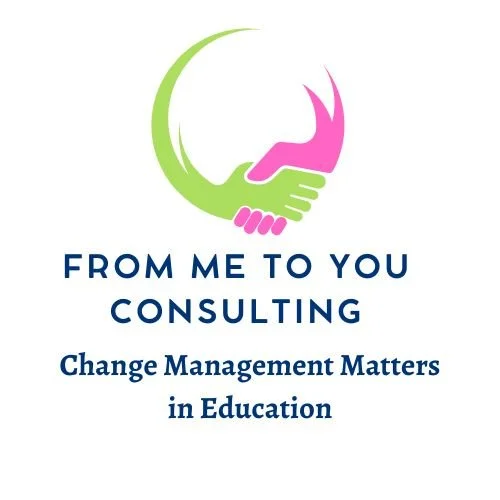Insight. Alignment. Transformation. Your Pathway to Equitable Success.
An audit is a systematic, independent, and documented process for obtaining evidence and evaluating it objectively to determine the extent to which specific criteria are fulfilled. In education, audits are used to assess the quality, effectiveness, and compliance of various aspects of educational institutions, such as curriculum, partnerships, and stakeholder engagement.
We conduct two types of audits - stakeholder and partnership, - to help school and cross-sector leaders, along with community partners, assess the importance of their relationships in order to drive positive change within their learning and workforce environments.
The Need for an Audit
All three audit types are integral to effective change management in education because they:
Provide Evidence for Decision-Making: Audits supply objective data that inform the planning and implementation of change initiatives.
Identify Gaps and Opportunities: They reveal strengths, weaknesses, and areas needing improvement, allowing leaders to focus change efforts where they are most needed.
Engage Stakeholders: Audits promote transparency and dialogue, building trust and buy-in that are essential for successful change.
Support Continuous Improvement: By regularly assessing and reporting on key processes, audits ensure that educational institutions can adapt and thrive in a changing environment.
Partnership Audit
A partnership audit evaluates the effectiveness and alignment of collaborations with external organizations, businesses, and community groups. It identifies which partnerships are contributing to educational objectives and which may need restructuring or enhancement. In change management, this audit helps institutions manage the people and organizational dynamics involved in partnerships, ensuring that collaborations support the institution’s change initiatives and strategic vision. Effective partnership audits lead to stronger, more purposeful alliances that can accelerate and sustain change.
Stakeholder Audit
A stakeholder audit systematically engages and assesses the perspectives of all key groups involved in or affected by the cross-sector institution-students, parents, staff, vendors, local industries, and community members. This audit fosters dialogue, measures organizational performance as a learning organization, and identifies stakeholder needs and expectations. In change management, stakeholder audits are critical for building buy-in, identifying resistance, and ensuring that change initiatives are responsive to the community’s needs. They stimulate debate, promote transparency, and help guide the institution through complex transitions.
Additional Services
All of our services are tailored specifically to each client. In addition to the other services offered, we are able to conduct the following consulting formats:
Accreditation Material Reviews: An accreditation review provides a snapshot of current performance and a roadmap for intentional growth and transformation. For our educational clients, we analyze self-study and/or required evaluation materials prior to the arrival of the accreditation review teams to determine areas of improvement.
Strategic Planning: A strategic plan turns bold ideas into organized, actionable steps, making real, lasting change possible. These plans simplify and communicate complex educational concepts, strategic planning, and change management. These plans may reveal and assess the need for inclusivity, economic outcomes, company well-being, and technological preparation.
Organizational Restructuring Consulting: We review and advise on reorganizing departments, roles, or systems to support innovations and streamline operations. This type of consulting identifies operational improvements to optimize resources. These functions help ensure the organization can adapt to new business realities while safeguarding stakeholder interests and supporting long-term performance.
Leadership Coaching (monthly 1:1 virtual): Coach cross-functional and sector leaders on managing change, communicating vision, and sustaining momentum. One-on-one coaching increases self-awareness, enabling individuals to recognize their strengths and areas for growth, and enhances resilience and adaptability, helping them navigate change with greater confidence and effectiveness. These benefits support personal development and improve overall performance during organizational transitions.
Feedback Loops and Frameworks: Feedback loops are often designed to be continuous throughout the preparation, management, and retention phases of change. Frameworks refer to the structured set of steps, tools, and processes used to systematically collect, analyze, interpret, and act on feedback within an organization, provide the organized method or blueprint that ensures the feedback is gathered and used consistently for ongoing improvement. We incorporate ProSci’s ADKAR Model as our guiding framework.
Inclusiveness and Belonging and Workforce Development: Inclusiveness and belonging training fosters open dialogue, providing educational programs to address biases, and engaging diverse stakeholders to create a culture where all perspectives are valued and employees feel a sense of belonging. Workforce development training and feedback loops build cross-sector partnerships and use clear communication to align workforce skills with evolving organizational needs. By integrating these approaches, the firm ensures that inclusiveness, belonging, and workforce development are embedded into organizational culture and processes, leading to sustainable and effective change.
If you would like to schedule the date and time of your FREE 30 minute consultation, please fill out this form.
Standard Duration: 3–6 days
Key factors: Number of partnerships, complexity of agreements, and data accessibility.
Process: Evaluates partnership goals, resource allocation, and ROI through document analysis and stakeholder interviews. Educational partnership audits typically allow more time for collaborative review. NOTE: We do not conduct IRS partnership audits.
Standard Duration: 1-2 weeks (5-10 days)
Key factors: Number of stakeholders, survey/feedback methods, and depth of analysis.
Process: Includes surveys, focus groups, and interviews to assess engagement and alignment. Larger institutions may extend timelines for community outreach.
Are your partnerships aligned with school/district goals and student outcomes? Are stakeholders part of your collaborative planning, decision-making, and/or improvement efforts?
Contact us to align your instructional and operational processes with conducting one of our signature audits.
“Change is a journey, not a blueprint.”
~Andy Hargreaves, Professor and Educational Consultant

